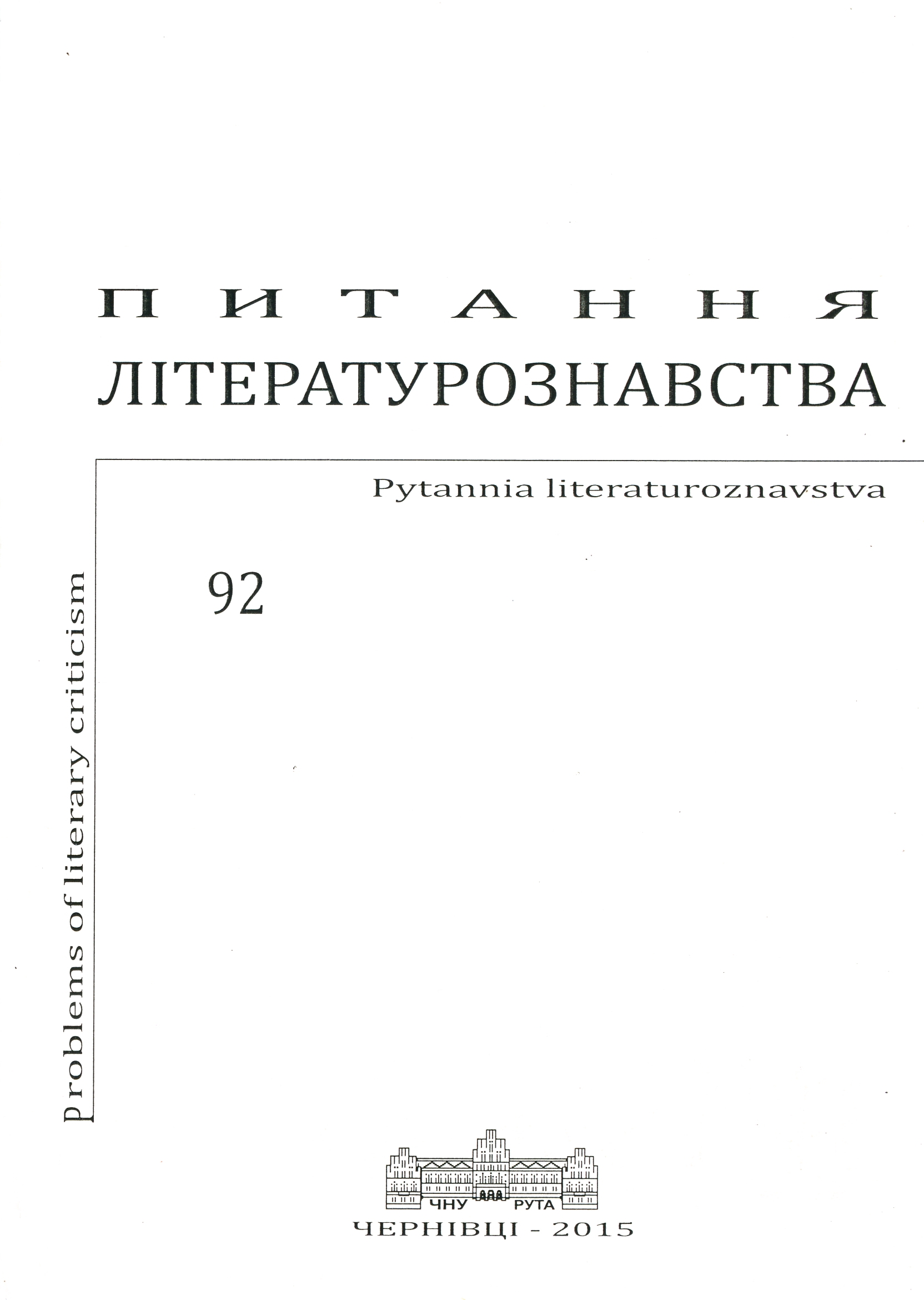Хронотоп в поэтическом творчестве Генрикаса Радаускаса и Бориса Поплавского
Chronotopos in the Poetry of Henrikas Radauskas and Boris Poplavsky
Author(s): Silvestras GaižiūnasSubject(s): Language and Literature Studies, Studies of Literature, Comparative Study of Literature, Lithuanian Literature, Russian Literature
Published by: Чернівецький національний університет імені Юрія Федьковича
Keywords: Henrikas Radauskas; Boris Poplavsky; chronotopos; the surreal aesthetic; Orpheus;
Summary/Abstract: The article treats poetic the creative work of two great poets and emigrants Henrikas Radauskas (1910–1970) and Boris Poplavsky (1903–1935). Radauskas’ creative work is closely related to many known phenomenons of the World Literature and Art in the postwar period. Radauskas like Poplavsky is interested to aesthetics of surrealism at all, he knows the poetry of the Russian emigration, also Poplavsky’s creative work. Both poets in their poems adventurously compares images, various realities. Often incomparable things become close at carnival play. Radauskas ignores law of empiric and prefers a fairy-tale, but Poplavsky – a miracle. For better understanding of parallels and differences of Lithuanian and Russian poets creative work in the article is analysed representation of the time and space. In this relation fundamental attention is paid to angel, Orpheus, the moon, height, abyss and deepness. Orpheus overcomes the time in Radauskas’s creative work and the space in Poplavsky creative work. In the poems of both poets phantasmagoric, surrealistic visions is related to the moon. In the lyric plot of Radauskas uncloses terrestrial and cosmic abyss, which embody the abyss of art too. The motive of abyss refills by the motive of depth and bottom in Poplavsky’s and Radauskas’ creative work. The bottom of Universe is deepest in Poplavsky creative work (29th poem from “The Automatic Poems”). It represents absolute loneliness. The impressive view of bottom opens in Poplavsky’s 166th poem “The Automatic Poems”. Here is represented the carnival, which connect heroes of various period. The parallel for this Poplavsky’s poem is Radauskas’ poem “Čiurlionis”.
Journal: Питання літературознавства
- Issue Year: 2015
- Issue No: 92
- Page Range: 131-144
- Page Count: 14
- Language: Russian

